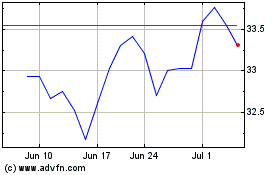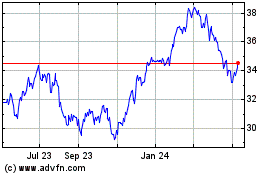By Jacquie McNish and Joann S. Lublin
Hunter Harrison is frustrated that "chest pounding" between his
activist investment partner and directors of CSX Corp. contributed
to a breakdown in negotiations for him to take the helm of the
railroad.
"I wish the two sides would get together and allow for this
value creation for the shareholders instead of going through these
games which create nothing but further anxiety for the
shareholders," Mr. Harrison said in an interview with The Wall
Street Journal.
CSX privately offered the chief executive position to the
72-year-old railroad veteran last week, but negotiations broke down
when Paul Hilal, Mr. Harrison's activist partner, refused to back
away from some compensation and governance demands.
Mr. Harrison said although he is "disappointed" that Mr. Hilal
was unable to reach an agreement with CSX, "I am not trying to
abandon anyone."
Mr. Hilal has conducted most of the discussions with CSX since
the Journal first broke the news last month that he had teamed up
with Mr. Harrison to shake up the Jacksonville, Fla.-based
railroad's management.
In a letter sent Thursday to the CSX board, Mr. Hilal urged the
company to resume negotiations, rather than wait for a shareholder
vote. The investor said he was willing to change five directors,
instead of six, if CSX agreed to give Mr. Harrison a four-year
employment contract instead of a two-year deal. CSX told Mr. Hilal
in a letter last week that would accept the nomination of five new
directors.
Mr. Hilal, whose hedge fund Mantle Ridge LP has invested in CSX,
is seeking to add six directors to a board that will eventually
shrink to 12 members. Mr. Hilal has also asked the railroad to
approve a compensation plan for Mr. Harrison that CSX estimated
could cost $300 million. The package includes a large stock award
and $89 million that Mantle Ridge had previously promised to pay
Mr. Harrison.
CSX said its board has concerns about giving so many board seats
to a shareholder with less than a 5% stake and that the cost of the
proposed compensation package is "extraordinary in scope and
structured largely as an upfront payment" with few performance
requirements.
About 50 CSX investors met with Mr. Hilal at a Manhattan
restaurant Wednesday night. They heard him defend his drive for six
board seats and Mr. Harrison's proposed pay package, according to
two shareholders.
"There was pushback" from investors on several issues, but their
greatest concern was over the number of seats sought, said one CSX
investor, who supports bringing in Mr. Harrison.
At Wednesday evening's gathering, Mr. Hilal said he needed the
five seats besides Mr. Harrison's so the expected new CSX chief
"has control and can execute his plan," according to this CSX
investor.
The standoff with Mr. Hilal prompted CSX to take the unusual
step Tuesday of calling for a special shareholder vote on Mantle
Ridge's demands, at a date to be determined.
CSX's decision to let shareholders vote on the activist's
demands "is a pretty smart move," said Charles Elson, head of the
Weinberg Center for Corporate Governance at University of
Delaware's business school.
The large pay package "casts a bit of a cloud on the activists,"
Mr. Elson said. "If you're running on a governance platform, this
kind of package would seem to be counter to a good governance
platform because of its significant size."
Mr. Harrison said he was willing to meet with CSX directors to
reconsider the terms of his compensation package, though CSX's
calculation is based on the assumption that its stock price would
improve significantly, "which would benefit all shareholders," he
said. Mr. Harrison declined to discuss what concessions he would
consider. "If [they] don't like this package, tell me how you would
like to bundle it and I'll take it under advisement," he said.
CSX did offer a counterproposal on compensation that would have
paid Mr. Harrison between $15 million and $20 million a year, well
above the current pay plan for its executives, people familiar with
the matter said. It didn't want to take on Mr. Hilal's commitment
to pay Mr. Harrison what he left on the table at Canadian Pacific
Railway, where Mr. Harrison was chief executive until last
month.
CSX said in a statement Tuesday night it would be
"inappropriate" to pay Mr. Hilal's commitment to compensate Mr.
Harrison for the $89 million he surrendered at CP.
At the Wednesday dinner, Mr. Hilal said the pay package is worth
$200 million and includes $120 million of stock options, about half
of which are tied to "very real" performance measures, according to
the CSX investor.
This CSX shareholder said the $200 million figure "is still a
lot of money." The investor also remains concerned over Mr.
Harrison's refusal to be examined by an independent physician,
saying "that's a big issue."
The activist proposal to CSX is similar to the compensation plan
Mr. Harrison was granted when he was named chief executive of CP in
2012. The plan was approved with little complaint after Bill
Ackman's Pershing Square Capital Management LP won a proxy battle
that handed the hedge fund a majority of directors on the
railroad's board. During Mr. Harrison's tenure, CP's stock price
more than doubled in value.
CSX's proposal exceeds the amounts paid to the company's current
chief executive, Michael Ward, who in the three years ended in 2015
earned a total of $31.6 million in salary, stock awards and other
benefits, according to a company filing. At CP, Mr. Harrison was
paid $18.7 million in salary, bonuses and stock awards last
year.
--Paul Ziobro and David Benoit contributed to this article.
Write to Jacquie McNish at Jacquie.McNish@wsj.com and Joann S.
Lublin at joann.lublin@wsj.com
(END) Dow Jones Newswires
February 16, 2017 18:56 ET (23:56 GMT)
Copyright (c) 2017 Dow Jones & Company, Inc.
CSX (NASDAQ:CSX)
Historical Stock Chart
From Mar 2024 to Apr 2024

CSX (NASDAQ:CSX)
Historical Stock Chart
From Apr 2023 to Apr 2024
